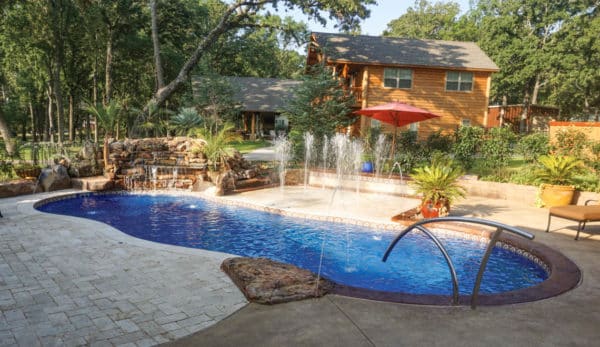Fiberglass pools are known for their durability, low maintenance, and smooth surfaces, making them an attractive option for many homeowners. However, one of the key considerations when investing in a pool is understanding its lifespan. The longevity of a fiberglass pool can vary based on factors like installation quality, proper maintenance, and environmental conditions. In this discussion, we’ll explore the typical lifespan of a fiberglass pool, how it compares to other types of pools, and what factors can help extend its life, ensuring you get the most out of your investment
Typical Lifespan of a Fiberglass Pool
A well-maintained fiberglass pool typically lasts 25 to 30 years or more. In some cases, these pools can last over 50 years. This longevity is one of the main reasons homeowners choose fiberglass over other pool types. Fiberglass is a strong, durable material that resists wear and tear better than concrete or vinyl liners.
Resistance to Cracks and Stains
Fiberglass pools are highly resistant to cracking, unlike concrete pools, which may develop cracks over time due to ground shifts or settling. The smooth, non-porous surface of fiberglass also prevents algae buildup and staining, which helps the pool maintain its appearance over the years. These features contribute significantly to its long lifespan.
Importance of Proper Installation
The quality of installation plays a critical role in determining the lifespan of a fiberglass pool. A poorly installed pool may experience structural issues or leaks over time. It’s essential to hire experienced professionals who understand the unique requirements of fiberglass pools. Proper leveling and a stable foundation help prevent shifting or pressure-related cracks.
Regular Maintenance
Even though fiberglass pools require less maintenance compared to other types, regular care is still important to maximize their lifespan. Routine cleaning, proper water chemistry, and timely repairs are essential. Maintaining balanced pH levels and keeping calcium hardness in check will help prevent surface deterioration and prolong the life of the pool.
Warranty Coverage
Many fiberglass pools come with long-term warranties, often ranging from 20 to 30 years. These warranties typically cover structural damage, such as cracks or leaks in the pool shell. This adds peace of mind for pool owners and reflects the manufacturer’s confidence in the product’s durability.
Extending Pool Life
To extend the lifespan of your fiberglass pool, avoid draining it unnecessarily, as this can cause pressure imbalances. Additionally, protect the pool from sharp objects that could damage the surface. Regular inspections and timely professional repairs help catch and fix minor issues before they become major problems.
In summary, a fiberglass pool offers impressive longevity, especially when properly installed and maintained. With regular care, it can provide decades of enjoyment.

